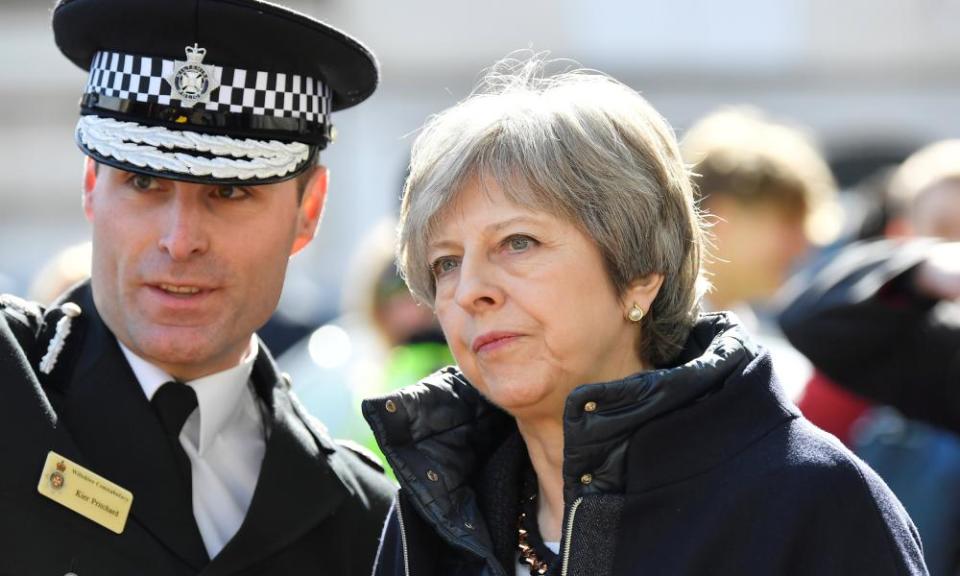In dealing with Russia, May has shown herself a politician not a statesman

Theresa May’s performance in recent days has been impressive (Matthew d’Ancona, 19 March) only if you consider the prime minister to be a highly talented party politician. There were two reactions possible when a couple of Russians were found poisoned in Salisbury. The first was to see what short-term political advantage could be garnered from it – and in that Mrs May swiftly brought her political skills to bear to great effect. By immediately accusing Russia, she brought her turbulent backbenchers to heel and distracted critical gaze from her difficulties over Brexit.
But a statesman would have asked what long-term international benefit could be obtained from the situation, of which the most obvious would be the winning, not of the opinion of friends and allies, but of the world. Instead she descended into the school yard with shouts of “You did it”. To which Russia replied, “No we didn’t”.
A statesman would not have rushed to act, but would have extended a polite invitation to Russia to say that it was not implicated and when Russia asked for an example of the poison, would have immediately agreed and sent one at the earliest opportunity. A statesman would have inaugurated a careful investigation of the facts, conducted in a blaze of publicity for all to follow. If, as a result, Russia were seen to have been responsible, world opinion would be won and the case could be dealt with by the United Nations. For Mrs May it has been a lost opportunity.
Edwin Apps
Liez par Maillezais, France
• I don’t have a lot to say for Mr Corbyn or Mr Putin, but just because issues are “secondary” does not mean they are not important. Matthew d’Ancona is right that “for the Kremlin, the battle is no longer between communism and capitalism, but authoritarianism and liberal democracy” – though surely the old cold war was always that as well. But does this mean that we should copy Putin’s illiberal habits?
Careful and thorough investigation of serious crimes before coming to conclusions. Evidence-based pronouncements by ministers rather than assertion and bombast. Firm but careful and diplomatic language when dealing with dangerous states. Freedom to broadcast alternative views to those of the current state power. A belief that it is not appropriate for a public broadcaster to doctor photographs and transmit ridiculous propaganda images like the “red dawn over Moscow”.
Do these not distinguish a liberal democracy from a populist autocracy? Or are we allowing ourselves to be provoked and dragged into a populist sewer – and dangerous international waters – in which all sides are pretty much the same?
Tony Greaves
Liberal Democrats, House of Lords
• Join the debate – email guardian.letters@theguardian.com
• Read more Guardian letters – click here to visit gu.com/letters

 Yahoo News
Yahoo News 